When my friend Jerry Dennis invited me to join him and his friends Chad Pastotnik, James McCullough, and Tim Tebeau for a few days on the Trophy Waters of the Au Sable River, I worried I’d be out of place in this group of tremendously talented writers and artists. But like Jerry, his friends’ kindness and humility matched their accomplishments. I would be okay. To be safe, though, I vowed to keep my mouth shut and let them think I was a fool rather than open it and remove all doubt, which, for instance, might happen if I tried to impress them with some overused—and possibly misattributed—quotation from Mark Twain.
As I anticipated, the guys were cerebral and witty in a writer and artist sort of way. Jerry told us we'd be fishing at Alligator Bend, where he’d caught some magnificent fish several years ago with his friends Kelly Galloup and Bob Linseman. A little prompting by me started something akin to a demonic possession within this group of distinguished scholars.
“Hell ya, man, I wanna snag a gator.’’
“I can't wait to stick some of those pigs.”
“Yeah baby, we're gonna snare some toads.”
More Like This
“Let's stop talking and go bag a donkey.”
Oh my, I thought, this could be my chance to get a trophy. Finally, I would bring home a special memento to hang on my wall and show my friends while I tell them about the night I fished Alligator Bend with the men of letters. This sort of thing is never easy, though, and many years ago—while teaching me to fish—my mom showed me how the scene doesn’t always follow the script when you target a trophy.
You see, my mom’s relationship with fish was distinguished by a simple four-step procedure:
Catch them. Clean them. Fry them. Eat them.
With few exceptions, steps two through four always followed step one. Mom occasionally threw the small ones back, but she never “released” them. I suppose people born in 1921 and raised in Boskydell, Illinois, didn’t know any other way.
My first lessons from the Beulah Marie Holliday fishing school involved a cane pole, a plastic bobber, and a clump of garden worms—or night crawlers when she could afford them—impaled on a bright Eagle Claw hook. Her equipment was slightly more sophisticated. Using a fiberglass rod with a Zebco 33 reel, she propelled an intricate arrangement of swivels and hooks as close to the pond’s center as she could manage. A lead bank-sinker provided the energy for her launches and also served to keep her line tight enough to cut cheese after she secured the rod in its spiral holder. Then she clamped a small metal bell to the tip to signal when a fish had taken the bait. When she was satisfied that everything was as it should be, she’d return to her aluminum chair and fire up a Winston. “I’m just dying for a cigarette,” she’d declare, unaware of how much more true that was than she imagined at the time.
After I mastered the cane pole, my mom gave me a small rod with a Zebco 202 reel and a little tackle box stocked with swivels, hooks, bank sinkers, a spiral rod holder, and a small metal bell. To maximize my efficiency, she taught me the difference between how the bell sounded when only one bluegill was on the line and how it sounded with two. “No need to bring it in with only one fish,” she’d instruct. Fishing from the bank of some small Illinois farm pond, my mom and I would repeat her process until we filled our white styrofoam cooler with enough bluegills to feed the two of us and several guests. Then she’d load our gear into her Plymouth and drive us home.
That’s how I fished until a railroad conductor who patronized my mom’s tavern gave me some old Field & Stream magazines. Poring over those pages, I learned that if you knew what you were doing—and several articles in those magazines precisely explained what you needed to know—you could catch a trophy. Fishing, I realized, could be about more than food. If everything went right, you could land a fish big enough to mount on your wall, and all your friends would marvel in awe.
“Can I try to catch a trophy?” I asked my mom. Occasionally we’d catch a decent catfish during our bluegill harvests, but we hadn’t targeted them. I reasoned that we could get a trophy if we tried to catch one. The night before our trophy trip, Mom put two frozen packages in our sink to thaw. One was a box of shrimp she had bought at the grocery store; the other was a package of chicken livers she extracted from chickens she’d killed, plucked, and cleaned in our yard.
When we got to the pond, Mom replaced our single-barb hooks with big ugly three-pronged gaffs. She loaded her hooks with chicken livers; I rigged mine with shrimp. We cast, attached the bells, then began to wait. We would typically have over a dozen bluegills in our cooler by the time my mom had smoked six cigarettes, but today she was on her seventh, and the bells were still silent. She was about to switch to small hooks and worms when the water abruptly boiled with raindrops, and we hurried back to the Plymouth, where I could look over the hood from my perch on the front seat and see the little golden bell on the tip of my rod. I would lose sight of it during the heavy sheets of rain, but between the water surges, I could see it. Until the time that I couldn’t.
My mom must have noticed first because she opened her door and yelled for us to go. I jumped out of the car, saw the rod bent nearly to the water, and heard the distinctive screech of the Zebco's drag. Mom handed me the rod and said something about keeping the tip high.
The state record for a channel catfish in Illinois was in the neighborhood of 40 or 45 pounds, but my 15-pound trophy got plenty of attention in the local hardware store where we took the fish to have it weighed. When we got home, Mom nailed the fish's head to a tree so she could skin it before slicing its thick flesh into chunky filets. Alas, my trophy hung on a tree for a short time but never on a wall. She put its severed head in our freezer, though, and for the next few months, she proudly showed the frozen souvenir to everyone who visited our house.
Although I fished the Trophy Waters with my creative friends until well after dark, we snagged no gators, stuck no pigs, snared no toads, nor bagged no donkeys. But the guys weren’t concerned about this, and we celebrated triumphantly upon our return to the cabin. Chad played music from a portable speaker system he had constructed from old tobacco cans, and we feasted on peanuts, cheese sticks, and crackers while drinking every drop of Tim’s imported Scotch “one more wee dram” at a time. And, of course, we told exaggerated stories and inappropriate jokes.
Writers and artists have a way of seeing things the rest of us can’t until they show them to us, and sometime between the first Joshua Davis song and the last dram of Scotch, my friends helped me realize we had indeed caught a trophy that night. It came to hand during a rushed moment just before we launched our expedition. And now, in a modest frame behind a plate of glass, the trophy hangs on my office wall, where I proudly show it to friends while I tell them about the memorable night I fished Alligator Bend with the men of letters.




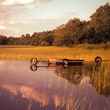


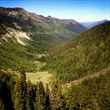
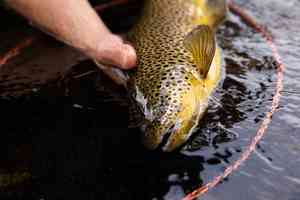




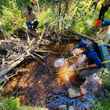





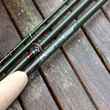
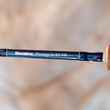



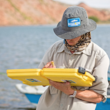
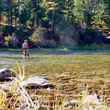
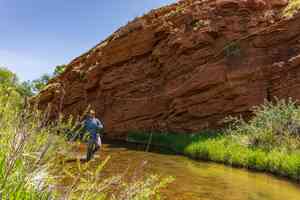
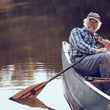
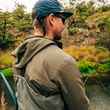
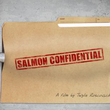
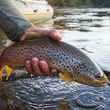
Comments